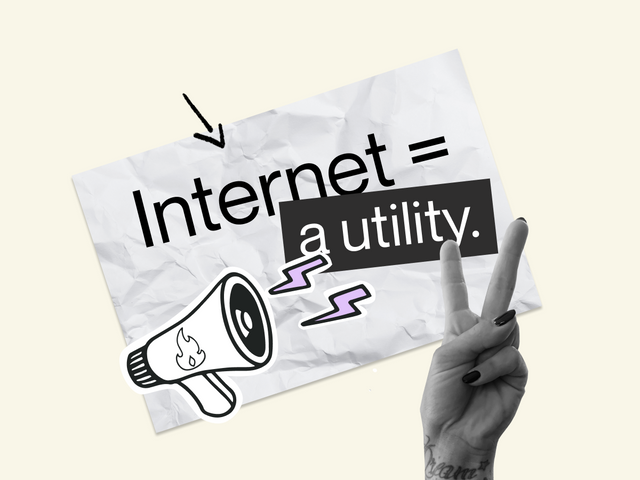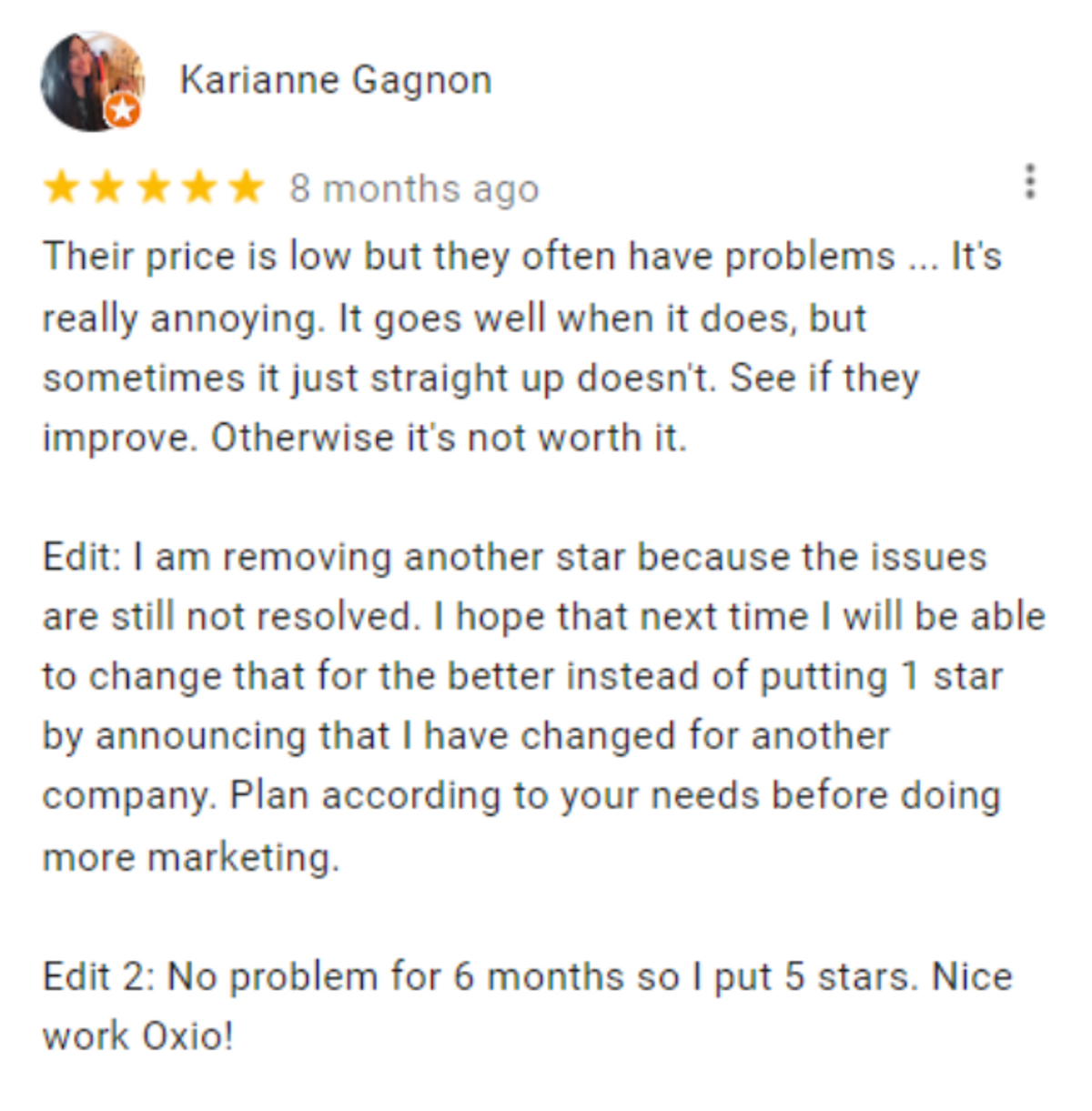
Every year, the Commission for Complaints for Telecom-Television Services (CCTS), releases an annual report summarizing all of the complaints they got about Canada’s telecommunications companies over the past year. (Their year starts on August 1 and ends on July 31 because, you know, why not?)
This year, we decided to write a summary of their summary. A summary2 if you will. In it we break down all the issues (LOL, okay, the issues that the CCTS was made aware of anyways) Canadians had with their residential internet service providers (ISPs).
The CCTS’ report is actually really well done. It highlights the important information and uses graphs, charts and illustrations to help us understand. So, if you are interested, we encourage you to read it. But if, like most people, you’d rather do pretty much anything else than read a 140 page report summarizing an impressive but not surprising number of complaints, we’ve written a sort of extended edition TL;DR for you.
Okay, so after getting a bit carried away with the intro, I promise, the rest of this article will actually save you time. Let’s do this.
The 2021 CCTS report.
But, before we really get into it. What does the CCTS do exactly? Well, in their report they describe themselves as: “...Canada’s national and independent organization dedicated to resolving customer complaints about telecommunications and television distribution services. We work with consumers, small businesses and participating Canadian service providers to resolve disputes about most telecom and subscription TV services after direct communications between a customer and a service provider have proven ineffective. We can help with most types of problems between a customer and service provider, including disputes about contracts, billing, service delivery and credit management.”
That’s right, the telco complaint department actually exists. And it’s free. So, if you’ve got a complaint you can make it here.
Okay, let’s get to those 5 reasons.
1. According to the CCTS, issues with residential internet make up 31% of all the problems mentioned in the report (Table 7.1).
So, wow. Let’s unpack that. That’s an increase of 12% compared to the same period the year before. That’s a lot of people making complaints to the complaint department.
The pandemic. Working from home. Studying from home. Having literally nowhere else to be but at home, meant that we’ve all been using our internet a lot more. We went from the internet being something we like to have around to the internet being a utility. Pre-pandemic, if you were using your internet for Facebooking, Netflix and chilling or uploading your hundreds of photos to the cloud, it wasn’t really the end of the world if your internet connection wasn’t always perfectly stable. Most of us probably didn’t even notice.
But as soon as videoconferencing became THE way a lot of us made our living, it was much easier to notice when our internet connection wasn’t living…up…to…sorry…my… internet…is…cutting...internet…is…cutting...up to what was promised. And, the fact that we’re paying more and more every year for “service improvements” probably makes us even more aware.
2. Internet charges and disclosure issues each accounted for 11% of reported internet problems (Table 7.3).
So, a total of 22% of the complaints about the internet were related to misinformation or information that wasn’t clearly presented or explained. For example, promotions that conveniently leave out certain details, contracts with hidden info., hidden fees, the list goes on and on. (Just under table 7.9 in the report there are a few case studies, if you’re interested.)
Transparency is important. And we’re not alone in thinking that. Except maybe when it comes to Canadian telecom companies. It’s one of the reasons why we don’t do contracts packed with asterixis and unreadable fine print.
This probably won’t be a surprise, but the internet without unnecessarily complicated contracts, would get rid of a lot of unnecessary problems. We know from experience. And, we’ve gone even further. We’re transparent in our communications and explanations of everything oxio and internet related (well, we’re working on it at least).
When we have additional fees that might apply, we don’t hide. We make sure they are up front where everyone can see and understand them. When we’re having service issues, interruptions, outages, etc. we post it to our status page, we send an email, we inform our client services and give them the info. they need to truthfully and properly answer our clients. We even ask our coworkers for help answering the inevitable increase in questions from our clients. We do everything we can to let our clients know everything we know as soon as we know it. When we have an issue, we talk about it. We apologize. And, we learn from it and do our best to change the way we do things in the future to reduce the chance of it happening again. Aka, the bare minimum as far as we’re concerned.
3. Complaints related to internet data usage billing issues went up 67%. 67%!!! (Section 7)
Shocking. But the why does make sense:
- A = It’s 2021. So people fairly assume and expect that their home internet is unlimited.
- B = A lot of people don’t actually have unlimited internet at home because they’re unknowingly tied to old contracts.
- A + B = Everyone who is now spending most of their time living and working from home is being taken advantage of. They easily exceed their download limits and pay extra because their provider didn't notify them.
We’re here to let you know that almost everyone assumes their internet is unlimited. So, to wake up one beautiful morning only to be faced with ridiculous overage fees on your internet bill is exactly the type of situation that makes it clear to us why the big telcos reinstated their limits after their “generous donation” of unlimited internet during the pandemic. Which, at the time of this writing, is still technically very much a part of our lives. Unless, we guess, you’re a big telco. (LaPresse wrote about this here.)
As an aside, and because this is our blog, we thought we’d mention that all our internet plans come with unlimited internet. Because, well, that’s the way it should be. No exceptions.
4. More than 50% of total complaints related to quality of service were about the internet (Table 7.6).
And, people complained 48% (Table 7.3) more about quality of service than they did last year. And and and, that increase actually reflects our lives during the pandemic. Our internet usage increased drastically and we all had a hard time keeping up.
Whether you were getting your internet from the big telcos or from an independent provider, the pretty epic increase in demand for data led to bandwidth problems, unstable connections, slow speeds during peak hours, etc.
We’re definitely not perfect. But we don’t pretend to be and we always do our best to fix what’s broken.

We can't say that we handled the increase in demand faultlessly, but we adapted, took responsibility, and worked hard to get through it. We won’t hide the fact that being a smaller company allows us to be more flexible and adapt a little more easily. But it is also our belief that listening and being nice shouldn’t be an afterthought. That and the importance we give to fair and sustainably priced internet is what really differentiates us from the big telcos. And those things have nothing to do with size and everything to do with wanting and choosing to do them.
5. Breach of contract issues increased by 53% (Table 7.3).
We’re talking here about people who made an agreement (a contract) with a telecom company and whose agreement was not respected. One of the most common examples is the difference between the agreement established over the phone and the contracts or invoices received afterwards.
Whether it's a temporary discount, payment terms, or a promotional offer (bet you saw that one coming from a mile away), failure to comply represents a breach of contract. It's a lot like those disclosure issues we talked about earlier, but the difference here is that the information was known by both parties (telco and client), but was not respected.
Here at oxio, we believe in equal access to opportunity and that starts with everyone having and understanding all the information. So, we make sure everyone has access to and pays the same prices. There’s no favouritism. If you’re looking for a temporarily cheaper price, there are other internet service providers out there. But we’re all about the long term and firmly believe that everyone consistently paying the same amount (aka fair and sustainable pricing) makes the internet more affordable for everyone.
What does all this mean for you?
The internet can no longer just be considered a contractual obligation. Context has made it a utility. An essential service. The number of people who rely on it, who need it (aka pretty much everyone) has made the internet in Canada indispensable. So, step one: change the way Canadians think about the internet—not as a contract, but as a utility. Step two, get the government to agree.
Making legitimate complaints is one of the best ways we, as citizens, have to defend ourselves and ensure that teleco companies are fairly and properly regulated. So, if you feel your internet provider isn't honoring their own agreements, is misleading you, over-charging you on your bills, or hiding information and details—speak up. Complain. Make sure you are heard. Because, you are definitely not the only one. If we really want to change the internet in Canada, it’s going to take a lot of us. It is going to take regulation and real competition. It’s going to take people choosing companies that actually give a damn.
If you want to come and chat some more about all this, or pretty much anything really, we're on Facebook, Discord and Reddit!
The CCTS’ Annual Report is here: https://pub.ccts-cprst.ca/2020-2021-annual-report/
Research and analysis par Francis C. and substantiated by Danilo T.







